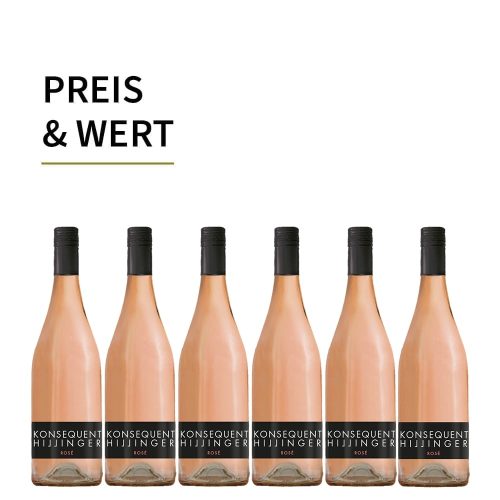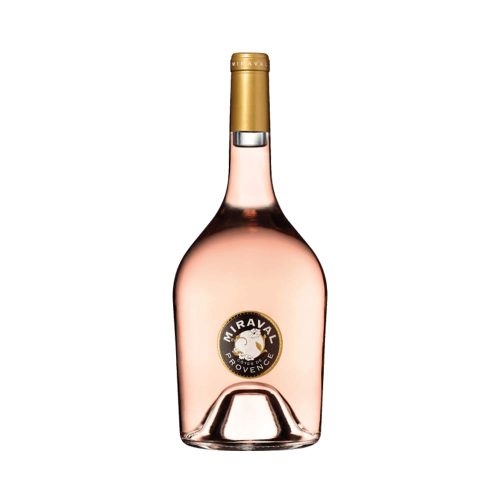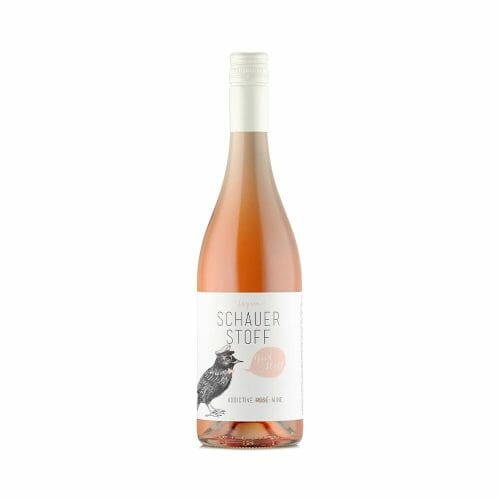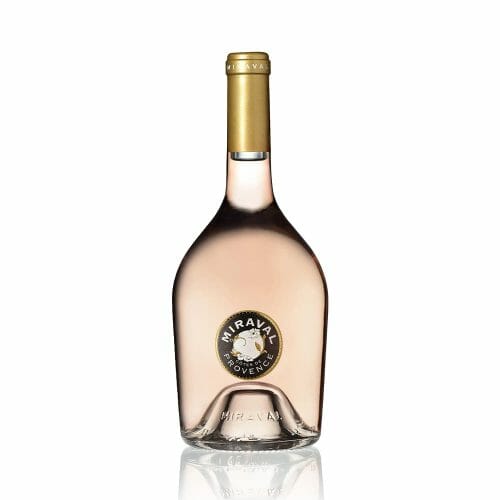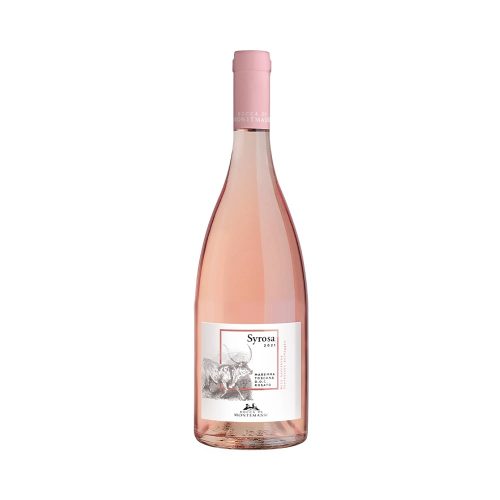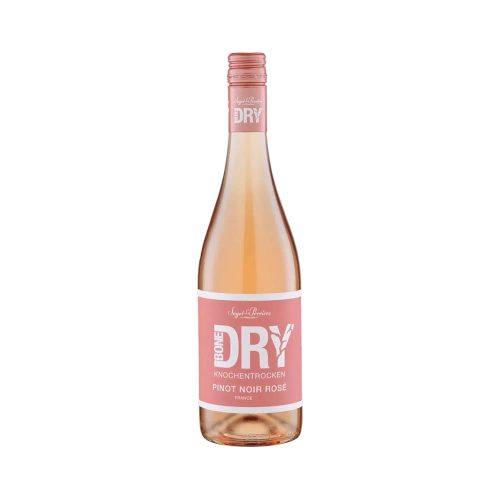Price range
Selection
Alcohol content
Country of origin
Variety
Region
Area
Classification
Vintage
Grape variety
Keywords
Occasions
Taste
Bottle size
Closure
Rosewine
Results 1 - 12 of 39 are displayed
-
Discover wineriesPackage
Package of 6 Rosé Heros
€89,70€71,76Includes 20% VAT(€15,95 / 1 L)plus shippingAdd to shopping cart -
Discover wineries
 Austria
Austria5+1 Set: HILLINGER Consistent rosé 2023
€75,60€63,00Includes 20% VAT(€14,00 / 1 L)plus shipping -
Discover wineries
 Austria
Austria4+2 Set: H&M Red Pheasant Rosé 2023
€47,70€31,80Includes 20% VAT(€7,07 / 1 L)plus shipping -
Wine square packages
 Austria
AustriaSet of 4: Rosé on everyone's lips
€31,25€28,00Includes 20% VATplus shipping -
Miraval
 France
FranceCotes de Provence Rosè - Magnum 2019
€39,95€28,00Includes 20% VAT(€18,67 / 1 L)plus shippingAdd to shopping cart -
Showers
 Austria
AustriaOxygen Rosé 2020
€9,45Includes 20% VAT(€12,60 / 1 L)plus shippingAdd to shopping cart
Rosé wine - what grape varieties?
Rosé wine can be made from a variety of grape varieties, and the choice of grape variety affects the taste and character of the wine. Here are some of the most common grape varieties used for the production of rosé wine:
- Grenache/Garnacha: Grenache is one of the most widely used grape varieties for the production of rosé wine. It brings fruity and aromatic notes of red berries and a pleasant acidity to the wine.
- Syrah/Shiraz: Syrah brings structure and spice to rosé wines. It can give notes of black fruits, pepper and spices, making the wine strong and spicy.
- Cinsault: Cinsault is a versatile grape variety often used for rosé wine. It brings fresh and fruity aromas with notes of strawberries, watermelon and rose petals to the wine.
- Mourvèdre/Mataro: Mourvèdre is a resistant grape variety that can give body and structure to rosé wine. It brings aromas of dark fruits, spices and herbs to the wine.
- Pinot Noir: Pinot Noir is a noble grape variety that can also be used for the production of rosé wine. It gives the wine elegance, fresh red fruit aromas and balanced acidity.
- Tempranillo: Tempranillo is a Spanish grape variety known for its powerful and spicy rosé wines. It brings aromas of red fruits, spices and a pleasant acidity to the wine.
These grape varieties are just a few examples, and there are many others that can be used for the production of rosé wine. Each grape variety makes its own contribution to the aroma and structure of the wine and provides great diversity in the world of rosé wine.
How does rosé taste?
The typical taste of rosé wine can vary depending on the grape variety, growing region and production method. Nevertheless, there are some common characteristics that are often found in the flavor profile of rosé wine:
- Fresh fruit aromas: Rosé wines are often characterized by fresh fruit aromas. Common aromas include strawberries, raspberries, cherries, red currants and watermelon. These fruity notes give the wine a pleasant liveliness and freshness.
- Delicate floral aromas: Rosé wines can also have subtle floral and floral aromas. Notes of rose petals, violets or lavender can enrich the fragrance of the wine and create an additional aromatic layer.
- Slight spicy notes: Light spice notes such as white pepper, cloves or herbs may be present in some rosé wines. These spice components can add an interesting complexity and spice to the wine.
- Fresh acidity: A characteristic feature of rosé wine is a pronounced, refreshing acidity. This acidity brings a lively freshness and enlivens the palate with a sparkling sensation.
- Dry or slightly sweet: Rosé wines can be dry or with a slight residual sweetness, depending on the style and production method. Dry rosés are usually bone dry, while slightly sweet rosés may contain a pleasant fruit sweetness that rounds out the taste.
It is important to note that the flavor profiles of rosé wine can vary depending on the origin and individual winemaking. There is a wide variety of rosé wines on the market, from delicate and fresh to powerful and structured versions.
Buy rosé wine online
Choose your rosé wine from our online range and order easily from home. If you want to know weekly about our offers, we recommend you our newsletter to receive your rosé in a few clicks.

